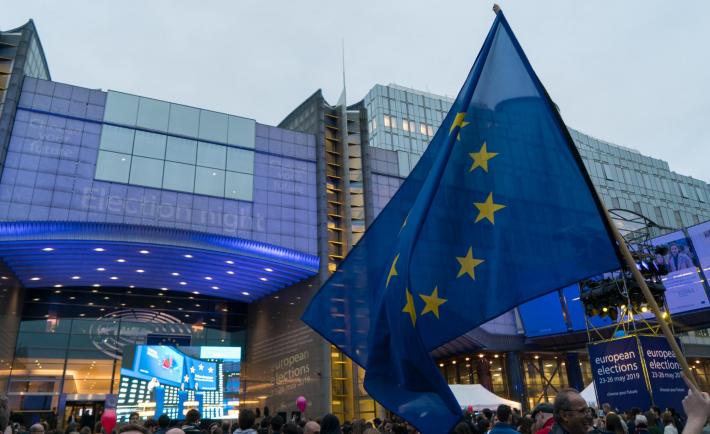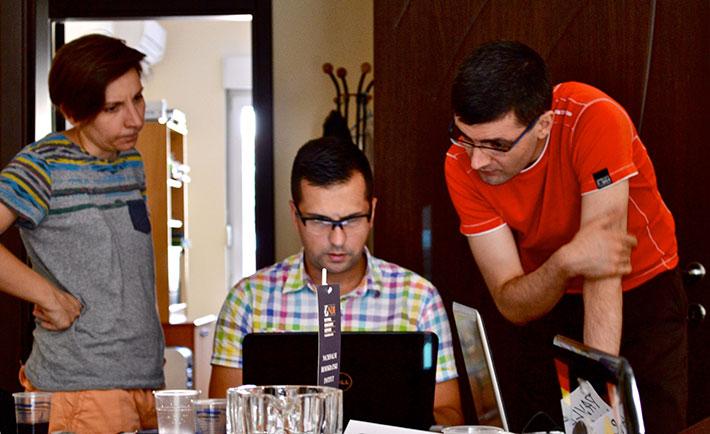
As four days of voting for the 2019 European Parliament (EP) elections closed on May 26, crowds await results from the European Union’s 28 member states and the new composition of the EP for the next five years. CC-BY-4.0: © European Union 2019 – Source: EP
The European parliamentary elections, held in May, came at a time of political soul-searching for the countries of Central Europe – the so-called Visegrad group of the Czech Republic, Hungary, Poland, and Slovakia – as they wrestle with European integration, constitutional democracy, and national identity. Though closely tied, the four countries are responding in different ways.


